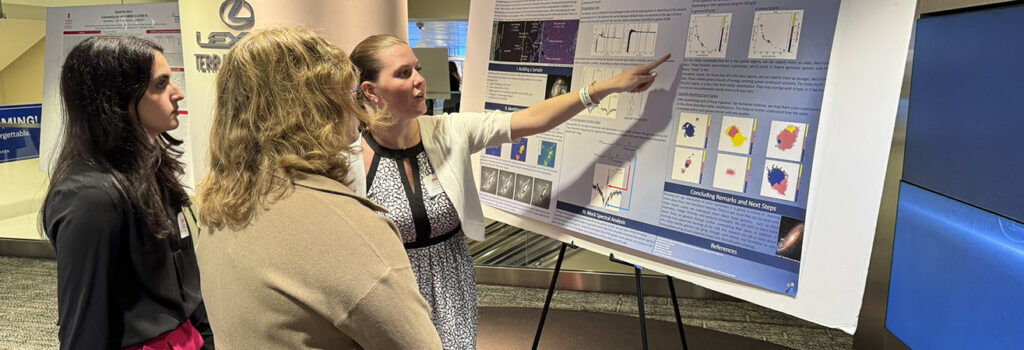Pre-Engineering Program
3+2 Engineering Plan
The most popular program is the 3+2 plan in which a student spends three years in a pre-engineering curriculum at Providence College, where the study of humanities, science, and mathematics are blended to produce the kind of fundamental background needed for future problem solvers. The final two years of study are spent in an engineering concentration of the student’s choice at one of our affiliate universities. Students may participate in all pre-graduation activities and the graduation ceremony with their entering year class. At the completion of the five-year program, the successful candidate receives two degrees: a B.S. degree in an engineering concentration of his/her choice from the affiliate university, and a B.S. degree in individualized program degree in mathematics, chemistry, and physics from Providence College. Please read the degree requirements in the course catalog.
4+2 Engineering Plan
The 4+2 plan is the program in which a student spends four years completing all the necessary requirements for the affiliate universities at Providence College then the following two years at an affiliate university studying an engineering concentration of the student’s choice. The student can major in physics or mathematics from Providence College, but the student must fully complete all the course requirements of the affiliate schools to be eligible to remain in this program. Students may participate in all pre-graduation activities and the graduation ceremony, yet the student does not actually receive his/her diploma from Providence College until the completion of his/her sixth year of study. The student will then receive a B.S. degree in the engineering concentration of his/her choice from the affiliate school and a B.S. degree in the major that they choose at Providence College.
3+3 or 4+3 Engineering Plan
This program is only offered for students wishing to go to Washington University in St. Louis. The 3+3 or 4+3 engineering plan allows the student to spend one extra year at Washington University to be able to receive a Master’s of Science or Master’s of Engineering degree in an engineering concentration of the student’s choice. At the end of the 6 or 7 years of study, the student will receive a Master’s of Science or Master’s of Engineering degree in an engineering concentration of his/her choice, a B.S. degree in an engineering concentration of his/her choice from Washington University in St. Louis, and a B.S. degree in individualized program degree in mathematics, chemistry, and physics from Providence College.
Affiliate Universities Requirements
Columbia University
For admission at Columbia University, the student must maintain an overall GPA of 3.50. The student must also maintain a minimum pre-engineering major GPA of 3.30, inclusive of all science and mathematics prerequisite coursework. Columbia University also requires that no individual grade in any math or science course drop below a B on the first attempt.
- For more information about Columbia University’s combined plan with Providence College please visit Columbia’s Combined Plan Program Website.
Engineering Concentrations at Columbia University:
- Applied Mathematics
- Applied Physics
- Biomedical Engineering
- Chemical Engineering
- Computer Engineering
- Computer Science
- Earth and Environmental Engineering
- Electrical Engineering
- Engineering Mechanics
- Industrial Engineering, Engineering Management Systems or Operations Research
- Materials Science and Engineering
- Mechanical Engineering
Washington University in St. Louis
For guaranteed admission at Washington University in St. Louis a GPA of 3.25 both overall and in science and mathematics courses is required.
- For more information about Washington University’s dual degree program with Providence College please visit Washington University’s Dual Degree Program Website.
Engineering Concentrations at Washington University:
- Biomedical Engineering
- Chemical Engineering
- Computer Engineering
- Computer Science
- Electrical Engineering
- Mechanical Engineering
- Systems Science and Engineering
Master’s Engineering Concentrations at Washington University:
- Master of Science in Biomedical Engineering
- Master of Engineering in Computer Science & Engineering
- Master of Science in Computer Engineering
- Master of Science in Computer Science
- Master of Control Engineering
- Master of Engineering in Robotics
- Master of Science in Electrical Engineering
- Master of Science in Systems Science & Mathematics
- Master of Engineering in Energy, Environmental & Chemical Engineering
- Master of Engineering in Mechanical Engineering
- Master of Science in Aersopace Engineering
- Master of Science in Materials Science
- Master of Science in Mechanical Engineering
Recommendations for Undeclared Students
Students interested in any of the engineering programs should consider the following recommendations:
- Before undertaking serious exploration of an engineering program, students are asked to consult with the chairperson of the EPS department
- If students are at all interested in this major, it is recommended that they pursue this option and then change out of this program if they do not find it to be suited to them. Because the 3+2 engineering program is the most popular program, the first three years of whichever program a student chooses are filled with courses that fulfill the college’s requirements as well as the programs requirements. This makes it exceedingly difficult for a student to fulfill all of the necessary requirements of the program if they decide to be apart of the program later on in their college career.
Engineering and Physics
Science Complex
401.865.2164
eps@providence.edu
Katie Weeks
Administrative Coordinator
Science Complex 0103A
(401)-865-2379
kweeks@providence.edu
Dr. Seth Ashman
Associate Professor / Department Chair
401.865.2572
sashman@providence.edu






